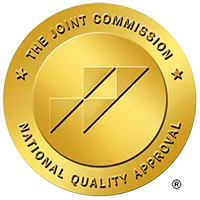The 12 Step Program IS Relapse Prevention
The techniques of the 12-step program are the most helpful strategies one can utilize for relapse prevention. All twelve principals are strategically laid out to help an addict realize he/she is not alone, that help is available, and building a support system is not only possible, but necessary. In the next few paragraphs we are going to examine a couple of key components in the 12-step program that will help us better chart a path to successful recovery.
Is A Basic Relapse Prevention Plan Enough?
As an addiction therapist since 1995, I have seen a lot of people do well at rehab, but struggle mightily in aftercare. After spending twenty-eight days or more in treatment, the average addict’s focus tends to be on getting out, and not on the most important part of recovery, which is prevention. Yes, relapse prevention is covered in treatment and an exit strategy is developed. But how realistic is it to expect an addict to make the right life decisions right after treatment?
“I can’t believe I relapsed. I never saw it coming”. I would venture to guess that one out of five clients I interview make this comment in the first few minutes of our initial session. The prevention plan is supposed to be about being smarter, making better choices, and following specifically designed relapse prevention techniques that make recovery successful. But, statistically, it is a well know conclusion that the average addict attempts in-house treatment two to three times before succeeding in recovery.
12 Step Relapse Prevention: Does It End At Step 3?
All twelve steps in the 12-step program are vital to successful recovery and provide helpful prevention techniques. Many treatment programs send clients out right after the completion of the third step and wish them well. One is left to find a healthy sponsor, and process the fourth and fifth steps, and then move on from there. The problem I see with that approach is that relapse happens primarily because of unresolved life issues, and secondarily, so many addicts wrongfully react to life situations, instead of following a pre-determined plan.
Dealing With Shame
I have interviewed hundreds of clients who have reported they previously completed treatment, but never dealt with the driving forces inside. Once out of treatment they go back to old behavior, like a knee jerk reaction. My experience has shown me these unresolved forces are driven by shame.
My focus for years has been to help clients deal with shame. If the shame isn’t resolved, relapse is just a matter of time. In dealing with shame, the rubble of the past must be cleared out, so that a new foundation can be built for a new life which doesn’t include the unresolved wounds, hurts, and issues of the past.
Shame is a self-perception of embarrassment, humiliation, disgrace or dishonor. It has been said living in shame is to feel worthless at the core of identity. If left unresolved, it can destroy our own divine destiny and can eventually lead to suicide. Many clients have told me that they can always find a way to forgive others, but never seem to be able to forgive themselves.
According to Therapist and Author Al Ells, “Shame energizes and pushes us to self-doubt, self-consciousness and low self-esteem. We struggle with our inadequacies and our inner voices of self-criticism. Where guilt says “I’ve made a mistake,” shame says “I am the mistake.”
Healing Shame Through The 12 Steps
Steps four and five are about taking a searching and fearless moral inventory. We must discover what is driving our emotions, deal with the unresolved, and bring them to a place of wholeness. That means looking at shame and facing our fears and walking right through them.
12 step prevention techniques that really help
Steps six through twelve are about making restitution and resolve with self and others, finding healthy people, maintaining recovery, reconstructing a new life, and giving back to others. Surrounding yourself with the right people, getting follow up counseling, going to quality meetings, and encompassing the Bible, Prayer, and Christian fellowship are all prevention tools that will make a difference in staying clean and sober.
Ultimately, the rest is up to the individual to follow through and make the right choices at the right time.
Red Rock Recovery Center is a Colorado state licensed substance abuse extended care treatment program designed to help you or your loved one recover from the struggles associated with alcoholism and drug addiction. Located in Denver, Colorado we offer a safe haven for those afflicted by the ravages of untreated addiction. Our program is based on a compassionate 12-step model that applies behavioral as well as life skill therapies, which will enable our clients to heal and recover.




